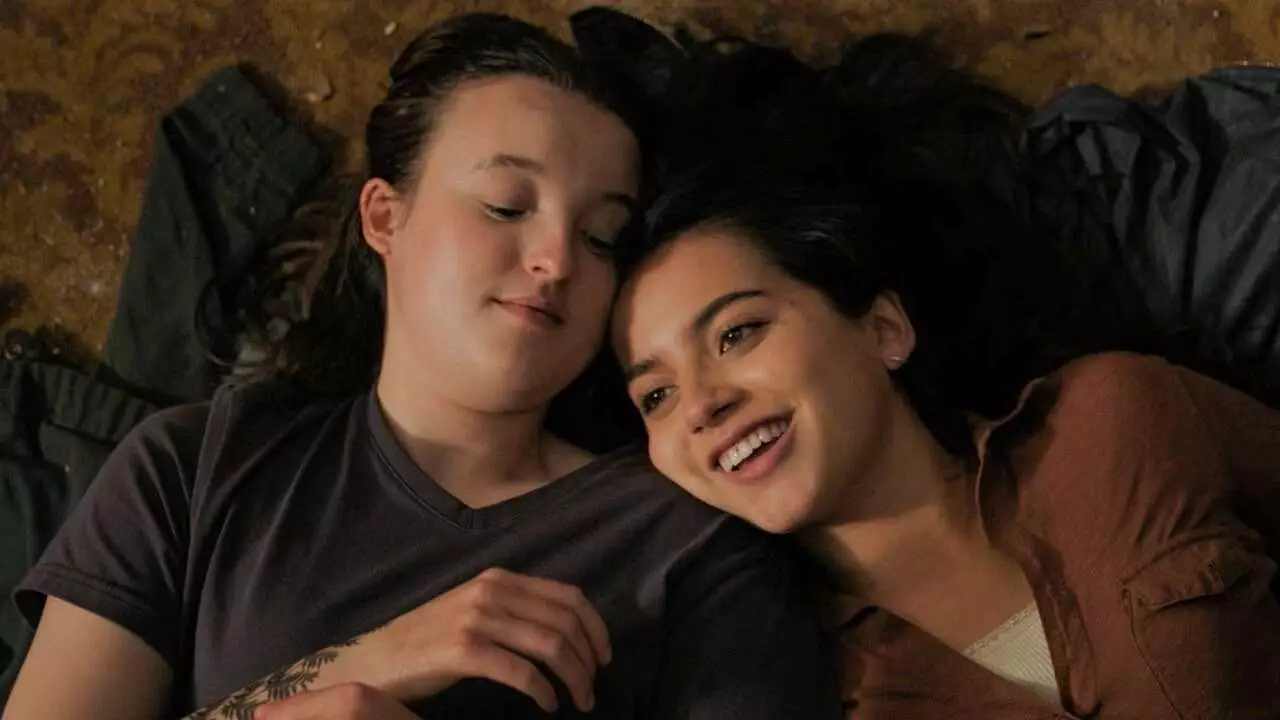HBO’s adaptation of *The Last of Us* has emerged as a monumental force in modern television, resonating deeply with audiences and establishing itself as a staple of pop culture. The narrative, steeped in themes of survival, love, and despair, has introduced a dystopian world dominated by fungal infections, capturing the imaginations of those who may not have initially been familiar with the critically acclaimed video games. Following a hiatus after its extraordinary debut, the series returned to the small screen, but this time, it encountered the familiar specter of audience division and discontent.
Despite the tumultuous climate surrounding its reception, Season 2 attained considerable acclaim, especially among critics. Earning a respectable score of 81 on Metacritic, the season has been praised for its intricate storytelling and character development. Yet, the user ratings told a different story. With nearly 500 ratings flooding in, the show was relegated to a “generally unfavorable” status, primarily due to a flood of dissenting voices that often leaned towards the vitriolic. A substantial proportion of these criticisms lacked constructive feedback and were dominated by complaints regarding representation, underscoring a troubling trend of review bombing in today’s fandom culture.
Challenging Narratives in a Contemporary Context
Among the standout moments in the latest episodes is the relationship development between Ellie and Dina, played by Bella Ramsey and Isabel Merced respectively. The emotional resonance of their bond, enriched by a nod to the iconic song “Take On Me,” encapsulates what audiences found engaging. However, these moments have become focal points for ridicule among certain viewer factions, who lament over the inclusion of queer representations in media. The outcry frequently echoes the same unfortunate narrative: a yearning for more traditional storytelling that excludes LGBTQ+ experiences. This discourse raises important questions about the inclusivity of modern storytelling and its implications for the future of television.
On the one hand, it is understandable that long-time fans of the original game might feel a strong emotional attachment to the characters. And yet it is crucial to consider the broader context of adaptation—where innovation and change are essential components of translating a beloved story into new mediums. The series does not merely seek to replicate the game; it aims to enhance and expand upon its foundational themes, offering richer character arcs and deeper emotional explorations.
A Mixed Bag of Reactions and Scandalous Backlash
Season 2 is not devoid of controversy either. The aftermath of Episode 3 of Season 1, which showcased the poignant yet polarizing relationship between Bill and Frank, exemplified how passionate responses can quickly devolve into outright hostility. Despite the episode winning Nick Offerman an Emmy, it still faced backlash from viewers uncomfortable with its representation of same-sex romance. This echoed in the current season, where bold moves towards representation have drawn ire from portions of the fanbase who cling too tightly to reductive expectations of sexuality in character portrayals.
Moreover, the introduction of new characters and shifts in established relationships have been met with mixed acceptance, highlighting the challenges creators face in reimagining the quintessential elements of a narrative while engaging new audiences. Isaac Dixon’s storyline, showcasing a darker facet of humanity amidst an apocalyptic setting, illustrates a commitment to nuanced storytelling that aligns with the gritty nature of the source material.
Redefining Success in a Polarized Era
Ultimately, *The Last of Us* stands as a testament to the power of storytelling in a fragmented cultural landscape. As the show continues garnering praise from critics and accolades, the discontent swirling around user ratings reflects larger societal conflicts around representation, inclusion, and expectations in entertainment. These elements are vital to recognize, as they not only influence how narratives are crafted but also dictate the reception of some of the most innovative works of storytelling today.
This ongoing struggle between progressive storytelling and traditionalist backlash encapsulates the essence of contemporary fandoms: a passion that can easily morph into hostility when confronted with narratives that challenge deeply rooted biases. As *The Last of Us* bravely ventures down this path, it compels both fans and critics to confront their perceptions of character, plot, and inclusivity, forging a new territory in the landscape of visual storytelling.


Leave a Reply